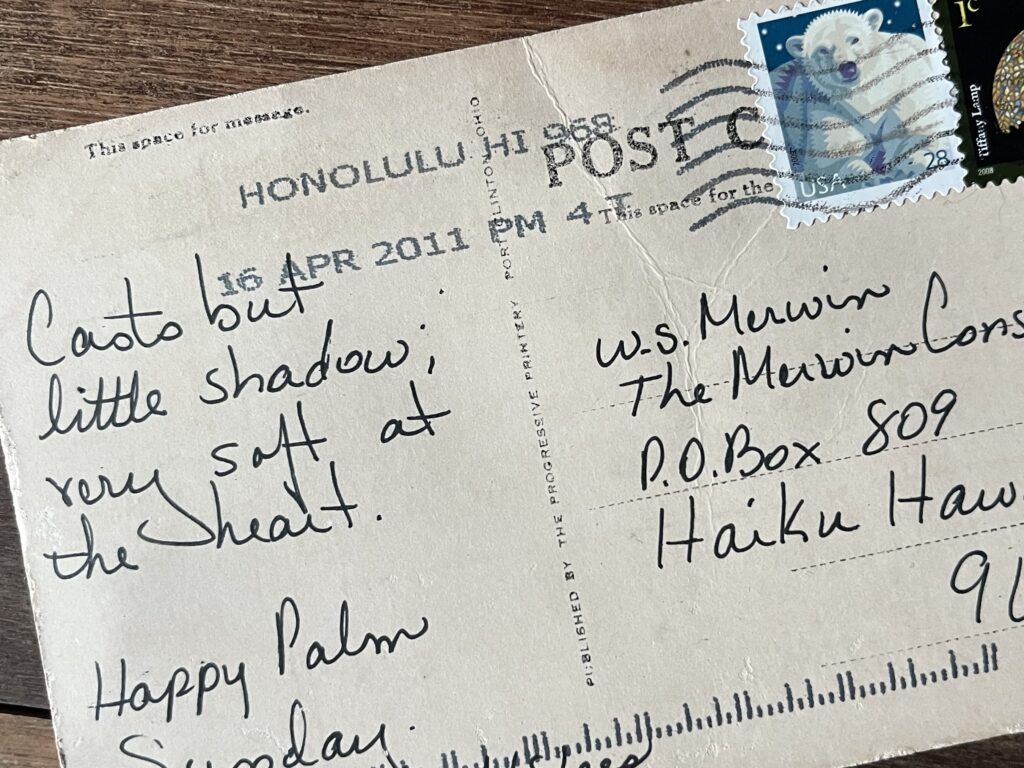
A Garden Collectively Tended
“Director’s Notes” are excerpts from our monthly email newsletter, “Stories from the Garden.” Subscribe and see past issues here.
Dear Friends,
Several times a week for several years now, I have made the drive to the rural post office in Haʻiku to pick up the Conservancy’s mail. In my first months here on Maui (which were W.S. Merwin’s last months in life), most times I turned the key to PO Box 809, mail spilled out onto the floor. Since its founding, the Conservancy had shared a mailbox with William and Paula, so early on there was lots of sorting to do. The Conservancy’s business mail mingled with countless letters from William’s friends and admirers, old and new. Mixed in were manuscripts from young writers, various inquiries about William’s life and work, and poetry and ecology journals. Paula had died the year before, and mailings from causes she cared about continued to trickle in. After William’s death, as the months and years passed, envelopes no longer tumbled from the box when I turned the key. Missives from organizations protecting animals, poetry and gardening magazines arrived still, but some days I found a box altogether empty (save The New Yorker, which we’ve kept to this day in William’s name). And then, over the last two years or so, PO Box 809 slowly began to fill up again. Notes from Conservancy friends old and new made their way to Maui. Cards of gratitude arrived from people who had visited the garden, along with letters from those who had as yet only imagined their way through the palms. Miniature watercolor paintings, poems, new books, newspaper clippings, stories, memories filled the box. This season, our post office box overflows once again, with family portraits and holiday greetings from around the world. One friend wrote: “When the phrase ‘peace on earth’ is tossed around during this season, I can’t help but think of the palm forest. There aren’t many manifestations like it on this earth.” These days, trips to the mailbox remind me—the place that was once William and Paula’s garden and then became the Conservancy’s to keep, is now under broad collective care. The land that William and Paula helped to revitalize after an age of exploitation and neglect, is now our shared reminder of what imagination and daily practice can make possible.
Wishing you a Happy New Year,
Sonnet